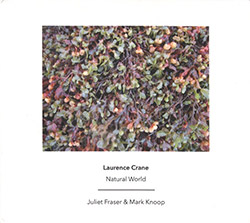
A work for voice, piano and electronics from experimental composer Laurence Crane, working with the closely associated UK ensemble Apartment House, Natural World is in three sections--"Field Guide", "Chorus" and "Seascape"--with vocalist Juliet Fraser and pianist & electronic artist Mark Knoop, Crane's work describing the natural world and portending the fragility of our ecosystems.
In Stock
Quantity in Basket: None
Log In to use our Wish List
Shipping Weight: 3.00 units
EU & UK Customers:
Discogs.com can handle your VAT payments
So please order through Discogs
Sample The Album:
Laurence Crane-composer
Juliet Fraser-voice, keyboard
Mark Knoop-piano, electronics
Click an artist name above to see in-stock items for that artist.
Label: Another Timbre
Catalog ID: at210
Squidco Product Code: 33211
Format: CD
Condition: New
Released: 2023
Country: UK
Packaging: Cardboard Gatefold
Recorded at City, University of London, UK, on December 17th, 2022, by Newton Armstrong.
Another Timbre Interview with Laurence Crane
How did Natural World come about?
Juliet Fraser first asked me several years ago if I would write a piece for her and Mark Knoop; Juliet then raised the funds to commission me. The thing we agreed upon first was that it would be a piece on a large scale - though it's turned out even longer than we'd imagined. We discussed the idea of a 'song cycle', which I suppose implies a substantial vocal work in several parts, with unified subject matter. I very much admire the work 'Andersen-Liederkreis' that Michael Finnissy wrote for Juliet and Mark, based on Hans Christian Andersen, and I felt I wanted to do something of similar ambition. So I was looking round for ages for what I wanted to write about, and Juliet then introduced me to the work of Rachel Carson, the American marine biologist who was active in the middle of the last century and who made some extremely important statements about what we were doing to the planet and its ecosystems. I then decided that I wanted to write something about the natural world. But I didn't want to do it in a way that was beating people over the head with a 'message'; it's more like a reflection on aspects of the subject.
I've often cited your song 'Tour de France Statistics', where the text is literally a list of sports statistics, as a good illustration of how meaningless texts are in music. I suppose I'm quite hardline on this; I don't like mixed media works with videos and so on, and I prefer music that is completely 'abstract' and non-programmatic, that doesn't use texts or make any external references. But when I heard Natural World live, everything went completely against that for me because, although you don't refer explicitly to the climate crisis, it did make me start thinking about - or better - feeling the fragility of the eco-system in crisis, and it actually reduced me to tears. So were you wanting to say something of significance in this piece from the start?
Well, I don't know. The piece that you refer to - 'Tour de France Statistics 1903 - 2003', to give it its full title - is another piece where I construct a text based on a list, and I'd already done this in an earlier work called 'Events', which I wrote in the 1990's, and which uses lists of facts from small columns in The Guardian newspaper. So yes, I suppose this comes from a sense of texts in music being problematic, partly for the reasons that you suggest, but also because if you set an existing piece of poetry you immediately start to erode what that poem is by imposing your own musical activity on it. I heard Wilfred Owen's poem 'Strange Meeting' read on the radio the other day; it's a beautiful, sad and powerful poem, but I can't hear it being read without immediately hearing Benjamin Britten's setting of it in his 'War Requiem'. I used to love that piece as a teenager, but I now feel that the music has changed the original poetry, whose own rhythms and internal 'music' have been obscured and altered by what happens in Britten's setting. And so I'm very wary of setting poems, and prefer to go to something more neutral, like a list or something that is not so precious as a poem, and can adapt more easily to the musical activity. Another example would be my piece 'European Towns', the text of which also consists of lists.
Natural World begins quite playfully with not quite a list, but encyclopaedia-style texts about birds, but then at some point it shifts to a darker and more poetic place - that phrase 'A strange place of beauty, the edge of the sea' has been going round my head for ages - but one that also edges into environmental politics. Now in general I think that politics and music don't mix well, and most attempts to combine the two just don't work for me, but Natural World is an exception in that it genuinely does make me feel things more deeply, or more sharply. Presumably you were intending to move into this kind of political engagement from the start?
No, I wasn't actually! When I'm writing a piece I'm just trying to get from A to B, and when I started writing Natural World I didn't know that it was going to end like it does. I didn't know it was going to be in three sections, and so I obviously didn't know what the end section was going to be. I knew that there was going to be a long piano introduction to the first section, because I'd done something similar in 'European Towns', where Juliet doesn't start singing until nearly 10 minutes in, and I liked that sense of scale. And I knew that the piano introduction was going to lead into a setting of a number of texts consisting of facts about birds, which I'd compiled, but at the start of working on the piece, that was all I knew really. So I had no vision of what the end was, and how it would turn out, right until the last few weeks of working on the score.
Wow, that really surprises me! What about the use of field recordings? Was that something you'd planned from the start?
It's difficult to remember exactly what my process was at the time, but Mark Knoop is king of the sampler, and my friend Matthew Shlomowitz has written some great pieces for Mark where he uses the sampler. So I decided that I wanted to use a sampler but I didn't want to use it in exactly the same way as Matthew does. At some point I just thought, well, if I'm writing about birds, then perhaps they ought to be aurally there! I've used tapes in other pieces, but I've not used field recordings before, and I thought this was the time to do it. Then I had the idea of the individual bird samples at the end of the first section morphing into the dawn chorus, which underpins the whole of the second section.
And then the sea recordings in the third section - the musical narrative takes a break for us all to listen to the sound of the sea itself. There are often many and disparate reasons for the things that happen in compositions and here I can think of two things that affected my decision to use recordings of the sea. The first was a memory of a piece by Richard Ayres, that was recorded by Apartment House around 15 years ago. The piece is called 'Wallis', after the Cornish painter Alfred Wallis, and towards the end of it, an unadorned recording of the sea is played back. I found the simplicity and directness of this moment very affecting when I first heard the piece. The second source is more oblique. There's a scene in Andrei Tarkovsky's film 'Solaris' in which is a car journey is made from the countryside to the city. No words are spoken at all and the scene focuses mostly on the roads driven on the journey and the other cars on those roads. There is an accumulation of sound and image as the car gets closer to the city, it's beautifully paced and very powerful. The scene lasts around 5 minutes; it's completely absorbing but contributes very little to the narrative. It was partly in my mind when I came up with the idea of using the sea recordings at this point in the third section of Natural World.
Did you make the recordings yourself?
No, they're all from internet sources, and Mark edited them. The instruction in the score for the sea recordings is to take three or four recordings, play one for about a minute, introduce another one, then another one, and so a texture accumulates. He's done it beautifully.
I also want to ask about the sense of melancholy at the end of the piece. This also happens in European Towns, which is like a lament for the ending of the UK's membership of the European Union. But Natural World is dealing with a wider sadness about what we are doing to the planet, and the fragility of the eco-systems that we're destroying. Music does melancholy and lament very well, but is that something you were aiming at from the start, or did it just evolve as you were composing the piece?
Well, I think there's a strong vein of melancholy in my music generally....
....it wouldn't appear on Another Timbre if there wasn't.
The most melancholic CD label on the planet! But yes, although there are other things going on in my music as well, I think that I am drawn to melancholy and it's bubbling under the surface in most of my pieces. I suppose it's something to do with the harmonies of the music, or the speed of it as well, and in this case I think there's also something melancholic about synthesised sine tones. So melancholy is always there as a possibility, and it will come through at times like this.

The Squid's Ear!
Artist Biographies
• Show Bio for Laurence Crane "Laurence Crane was born in Oxford in 1961 and studied composition with Peter Nelson and Nigel Osborne at Nottingham University, graduating in 1983. He lives and works in London. His music is mainly written for the concert hall, although his list of works includes pieces written for film, radio, theatre, dance and installation. He is closely associated with the British ensemble Apartment House, who have to date given around forty performances of his works. He has composed two pieces especially for the ensemble; Riis and John White in Berlin, the latter commissioned in 2003 by the MaerzMusik Festival in Berlin. The personnel of Apartment House include players who have been regular collaborators for many years; clarinettist Andrew Sparling, flautist Nancy Ruffer, pianists Sarah Walker and Philip Thomas, guitarist Alan Thomas and cellist Anton Lukoszevieze, who is the director of the ensemble. Crane's output includes solo works written for some of these performers, including Bobby J, for Alan Thomas, Raimondas Rumsas, for Anton Lukoszevieze, and Sparling, for Andrew Sparling. Apartment House have presented two portrait concerts of his work; in October 1998 at the Three Two Festival in New York City and in October 2001 at The Warehouse in London as part of the BMIC's Cutting Edge series, a concert that was subsequently broadcast on BBC Radio 3's weekly new music programme Hear and Now. Piano music has been an important feature of his work and pianists who have performed his solo piano pieces include Michael Finnissy, Marc Couroux, Tim Parkinson, halia Myers , Jonathan Powell, Sarah Nicolls, Andrew Zolinsky and John McAlpine. Two of his piano pieces, Chorale for Howard Skempton and Postlude, were commissioned by the Associated Board for publication in the Spectrum series. Michael Finnissy has recorded Crane's complete piano music for future release. Performers of chamber works have included Ruth Wall, Rhodri Davies, Tom Pauwels, Claire Edwardes, Duo Contour, Lore Lixenberg & Dominic Saunders, IXION, Lontano, Noszferatu, COMA, Bradyworks (Montreal), Continuum Ensemble (Toronto), Ensemble Offspring (Sydney) and the London Sinfonietta. The Canadian new music group Ensemble Kore gave a portrait concert of Crane's work in Montreal in September 2005. The Auckland-based ensemble 175 East have given a number of performances in New Zealand, including radio broadcasts of See Our Lake and Sparling NZ on Concert FM. The Dutch group Orkest de ereprijs commissioned Movement for Ensemble in 2002 and gave the premiere in Amsterdam, at the Gaudeamus International Music Week. Following this performance the Ives Ensemble commissioned Movement for 10 Musicians, a new version of the earlier work, for collaboration with Rotterdam Dance Works, which toured the Netherlands in the spring of 2004. Crane has composed two further works for Dutch musicians in 2006; Ullrich 1 and 2 for Orkest de Volharding and West Sussex Folk Material, for the Netherlands Radio Chamber Orchestra. In early 2007 he composed a set of pieces for the Vigani's Cabinet project, a unique three-year programme of new commissions for Queens' College Cambridge. Laurence Crane's music has been presented at festivals in Britain and abroad, including Bath, Brighton, Cheltenham, Huddersfield, The Cutting Edge (London), MaerzMusik (Berlin), Ultima (Oslo) and ZaterdagMatinee (Amsterdam). Several of his works have been broadcast on BBC Radio 3 including Trio (written for Topologies), See Our Lake (written for IXION and for the first concert of the BMIC's Cutting Edge series), Weirdi (commissioned by Tapestry), Events (commissioned by the BBC for the experimental programme Between the Ears), Four Miniatures (commissioned by Noszferatu) and John White in Berlin (performed by Apartment House at a BBC Invitation Concert)." ^ Hide Bio for Laurence Crane • Show Bio for Juliet Fraser "Juliet Fraser was educated at the Purcell School as a first-study oboist and then at Cambridge University where she read Music and History of Art. It was whilst a student there that she started singing, in the chapel choir of Clare College; subsequently she sang with professional choirs such as Polyphony, Tenebrae, the Monteverdi Choir, The King's Consort, The Tallis Scholars and BBC Singers. In early music, she has worked with European consorts Ensemble Polyharmonique and Gli Angeli Genève. She was a regular member of the soloists of Collegium Vocale Gent, directed by Philippe Herreweghe, for six years, performing and recording Renaissance polyphony by Lassus, Vitoria, Gesualdo and Byrd. In new music, Juliet has performed as a soloist with Klangforum Wien, ICTUS, Plus-Minus, We Spoke: New Music Company, London Sinfonietta and BBC Scottish Symphony Orchestra in festivals such as hcmf//, Tectonics Glasgow, Transit 20/21, Donaueschinger Musiktage, MaerzMusik and Wien Modern. Recently, she has created duo projects with pianist Mark Knoop and percussionist Maxime Echardour. She has premièred well over 100 works, many of which have been written for her, working particularly closely with composers Michael Finnissy, Bernhard Lang, Rebecca Saunders, Stefano Gervasoni, Frank Denyer, Christopher Fox, Matthew Shlomowitz, Cassandra Miller and Andrew Hamilton. Juliet is principal soprano of EXAUDI, the acclaimed contemporary music vocal ensemble, which she founded in 2002 with composer/conductor James Weeks and with whom she makes regular appearances at major European festivals such as Aldeburgh, Spitalfields, hcmf//, ManiFeste, Festival d'Automne, Ars Musica, Wittener Tage and Darmstadt Ferienkurse. Opera roles include Neige in Catherine Kontz's NEIGE at Grand Théatre de Luxembourg (2013), Tina in Limbus Limbo by Stefano Gervasoni at Musica Strasbourg, Automne en Normandie, Opera de Reims and Opera Comique, Paris (2012), and Grace Hartigan in Larry Goves's I do this I do that (2011). Juliet has been nominated twice for an RPS Award in the Singer category and is currently supported by Aldeburgh Music's Open Space scheme. Her first dedicated solo disc, a recording of Morton Feldman's Three Voices, was released on the HatHut label in November 2016." ^ Hide Bio for Juliet Fraser • Show Bio for Mark Knoop "London based pianist and conductor Mark Knoop is known for his fearless performances and individual interpretations. He has commissioned and premièred countless new works and worked with many respected composers including Michael Finnissy, Joanna Bailie, Bryn Harrison, Bernhard Lang, Matthew Shlomowitz, Jennifer Walshe and Steven Kazuo Takasugi. His versatile technique and virtuosity also brings fresh approaches to the standard and 20th-century repertoire. Mark performs regularly throughout Europe, the United Kingdom and Australia and in New Zealand, South Korea, Mongolia, United States of America, Canada and at festivals including Transit (Leuven), Ultima (Oslo), Huddersfield, London Contemporary Music Festival, Borealis (Bergen), Spor (Århus), Athelas (Copenhagen), and MaerzMusik (Berlin). He performs with various ensembles including Plus-Minus (London/Brussels) and Apartment House (London), and has conducted EXAUDI (London), Scenatet (Denmark), and London Sinfonietta. His recordings of music by John Cage, Richard Beaudoin, Karlheinz Stockhausen, Peter Ablinger, and David Lumsdaine have been critically acclaimed." ^ Hide Bio for Mark Knoop
11/20/2024
Have a better biography or biography source? Please Contact Us so that we can update this biography.
11/20/2024
Have a better biography or biography source? Please Contact Us so that we can update this biography.
11/20/2024
Have a better biography or biography source? Please Contact Us so that we can update this biography.
Track Listing:
1. Field Guide 23:14
2. Chorus 9:48
3. Seascape 22:10
Compositional Forms
Piano & Keyboards
Electronic Forms
Field Recordings
London & UK Improv & Related Scenes
Duo Recordings
New in Compositional Music
Search for other titles on the label:
Another Timbre.

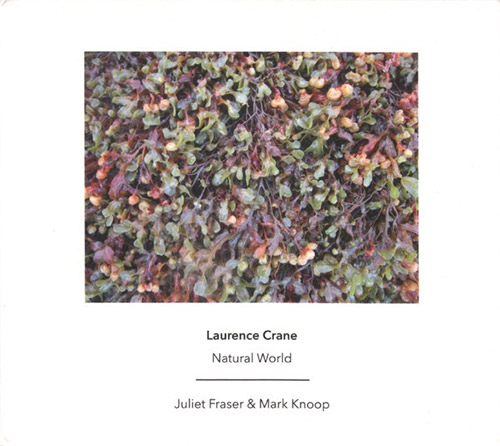
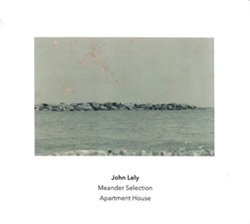
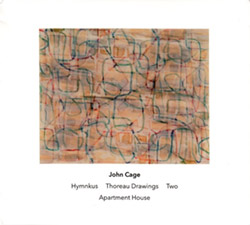
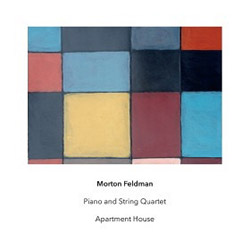
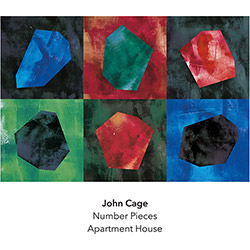

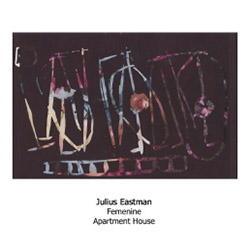



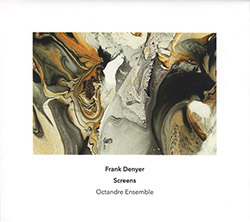
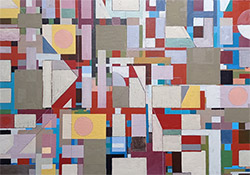

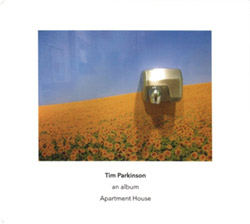
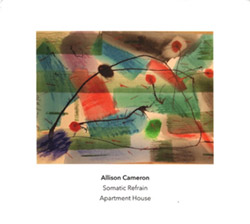
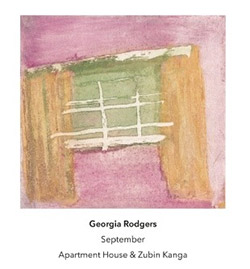

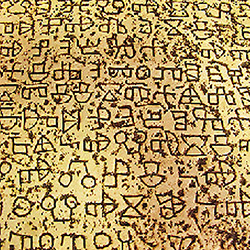


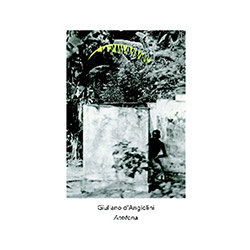
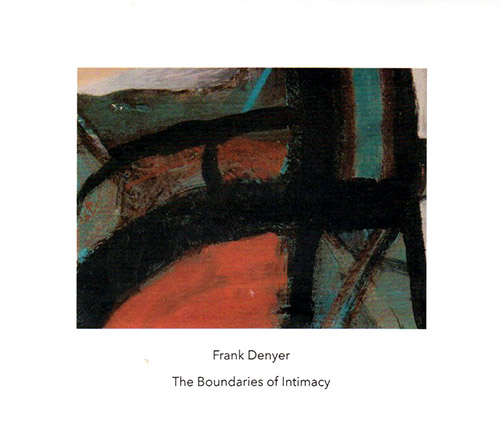






![Guy, Barry / Ken Vandermark: Occasional Poems [2 CDs]](https://www.teuthida.com/productImages/misc4/34849.jpg)
![Novoa / Carter / Mela Trio: Vol.1 [VINYL]](https://www.teuthida.com/productImages/misc4/35236.jpg)


![Elephant9 : Mythical River [VINYL]](https://www.teuthida.com/productImages/misc4/34624.jpg)
![Evans, Peter (Evans / Eldh / Black): Extra [VINYL]](https://www.teuthida.com/productImages/misc4/35279.jpg)

![McPhee, Joe: Straight Up, Without Wings [BOOK]](https://www.teuthida.com/productImages/misc4/35454.jpg)
![Jeck, Philip: rpm [2 CDs]](https://www.teuthida.com/productImages/misc4/35455.jpg)













![Barker / Parker / Irabagon: Bakunawa [VINYL]](https://www.teuthida.com/productImages/misc4/35533.jpg)
![Blaser, Samuel / Marc Ducret / Peter Bruun: Dark Was The Night, Cold Was The Ground [VINYL 10-inch]](https://www.teuthida.com/productImages/misc4/35492.jpg)








![Warren, Kenny (Warren / Hoffman / Ellman): Sweet World [VINYL]](https://www.teuthida.com/productImages/misc4/35451.jpg)




![Blake, Ran / Dave Knife Fabris: Live Amsterdam 2006, First Visit [CD + POSTCARDS]](https://www.teuthida.com/productImages/misc4/35275.jpg)













![DNS: Taking Big Bites Of The Khandas Three Cafes Deep [2 CDs]](https://www.teuthida.com/productImages/misc4/35334.jpg)




![Cleaver, Gerald: The Process [VINYL]](https://www.teuthida.com/productImages/misc4/34966.jpg)




![Alva Noto: HYbr:ID II [VINYL 2 LPs]](https://www.teuthida.com/productImages/misc4/35201.jpg)

![Baron, Derek / Luke Martin: Distinct and Concealed [CASSETTE + DOWNLOAD]](https://www.teuthida.com/productImages/misc4/35079.jpg)

![Lyle, Erica Dawn : Colonial Motels [CASSETTE + DOWNLOAD]](https://www.teuthida.com/productImages/misc4/35080.jpg)









![Sanna, Claudio: Compositori Sardi Contemporanei II [2 CDs]](https://www.teuthida.com/productImages/misc4/35317.jpg)







![Zurria, Manuel: Fame di Vento [3 CDs]](https://www.teuthida.com/productImages/misc4/35167.jpg)

![Granberg, Magnus / Nattens Inbrott / Skogen: Holde Traume, Kehret Wieder! [2 CDs]](https://www.teuthida.com/productImages/misc4/35038.jpg)
![Frey, Jurg: Outermost Melodie [2 CDs]](https://www.teuthida.com/productImages/misc4/35039.jpg)

![Pavone, Jessica: Reverse Bloom [VINYL]](https://www.teuthida.com/productImages/misc4/34895.jpg)



![Modney (Modney / Wooley / Gentile / Roberts / Pluta / Symthe / ...): Ascending Primes [2 CDs]](https://www.teuthida.com/productImages/misc4/34852.jpg)









![Elephant9 with Terje Rypdal: Catching Fire [VINYL 2 LPs]](https://www.teuthida.com/productImages/misc4/35355.jpg)
![Deerlady (Obomsawin, Mali / Magdalena Abrego): Greatest Hits [VINYL]](https://www.teuthida.com/productImages/misc4/34876.jpg)




![Haino, Keiji: Black Blues [2 CDs]](https://www.teuthida.com/productImages/misc4/35109.jpg)



![Surplus 1980: Illusion of Consistency [CD]](https://www.teuthida.com/productImages/misc4/35069.jpg)
![Staiano, Moe: Away Towards the Light [VINYL + DOWNLOAD]](https://www.teuthida.com/productImages/misc4/35037.jpg)



![Caveira (Gomes / Sousa / Abras / Ferrandini): Ficar Vivo [VINYL]](https://www.teuthida.com/productImages/misc4/34643.jpg)
![Gregg, J. J. / David Van Auken: Lunar Prairie [CD w/ DOWNLOAD]](https://www.teuthida.com/productImages/misc4/34611.jpg)

![Coultrain: Mundus [VINYL]](https://www.teuthida.com/productImages/misc4/32439.jpg)
![Mattin: Songbook #6 [VINYL]](https://www.teuthida.com/productImages/misc4/27317.jpg)
![Punkappella: Wake Up [7-inch VINYL]](https://www.teuthida.com/productImages/misc4/17519.jpg)
![Residents, The: WARNING: UNiNC.: Live And Experimental Recordings 1971-1972 [VINYL 2 LPs]](https://www.teuthida.com/productImages/misc4/31521.jpg)
![Coultrain: Phantasmagoria [VINYL]](https://www.teuthida.com/productImages/misc4/30142.jpg)
![Lennon, Sean Ono: Asterisms [VINYL]](https://www.teuthida.com/productImages/misc4/34517.jpg)

![Coley, Byron: Dating Tips for Touring Bands [VINYL]](https://www.teuthida.com/productImages/misc4/17906.jpg)

![Lost Kisses: My Life is Sad & Funny [DVD]](https://www.teuthida.com/productImages/misc4/lostKissesDVD.jpg)